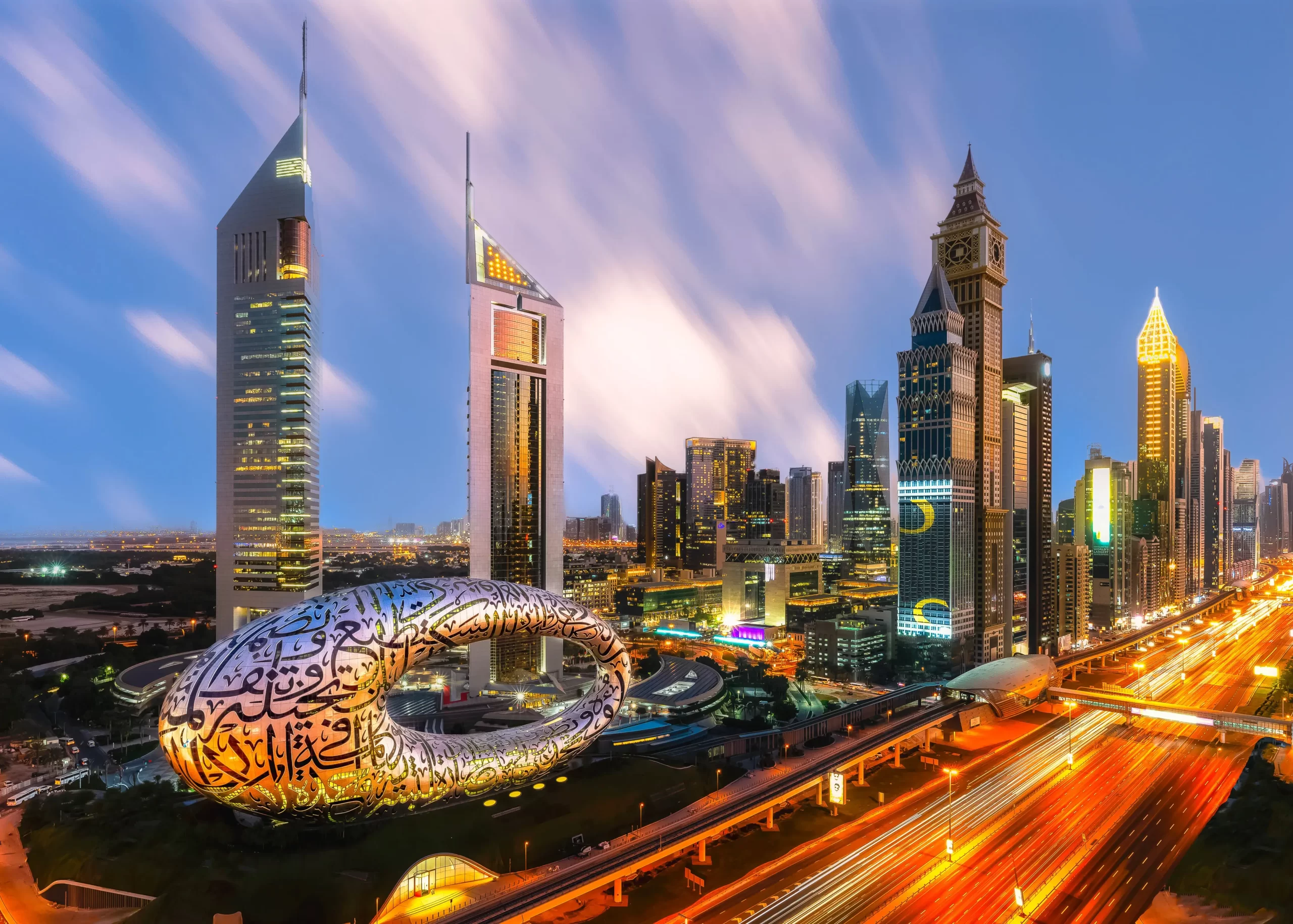
Sheikh Zayed Road Speed Limit 2025
Sheikh Zayed Road, one of Dubai’s main arteries, plays a crucial role in the city’s transportation network. The speed limit on Sheikh Zayed Road is 100 km/h, with some variations in more congested areas. This limit is designed to balance efficient traffic flow with safety considerations on this bustling thoroughfare.
Speed Limits on Sheikh Zayed Road and Connecting Roads
Sheikh Zayed Road’s speed limit of 100 km/h is part of a broader network of highways and major roads in Dubai, each with its own specific speed regulations:
- Sheikh Mohammed bin Zayed Road: 120 km/h
- Emirates Road: 120 km/h
- Al Khail Road: 100 km/h
- Ras Al Khor Road: 100 km/h
- Sheikh Rashid Street: 80 km/h
- Hessa Street: 80 km/h
- Oud Metha Street: 60 km/h
- Al Manama Street: 60 km/h
- Al Asayel Street: 60 km/h
It’s important to note that Dubai’s highest speed limit is 140 km/h, found on certain sections of major highways like Sheikh Mohammed bin Zayed Road and Emirates Road.
Recent Speed Limit Changes
The Roads and Transport Authority (RTA) and Dubai Police recently announced changes to speed limits on two key roads, effective September 30, 2024:
Sheikh Zayed bin Hamdan Al Nahyan Street:
- 100 km/h between Dubai Al Ain Road and Academic City Roundabout
- 90 km/h from Academic City Roundabout to Al Khawaneej Street
Al Amardi Street:
- Standardized at 90 km/h from Al Khawaneej Street to Emirates Road
These changes are part of ongoing efforts to improve traffic flow and enhance road safety. The adjustments come after comprehensive engineering and technical studies conducted by the RTA over several months.
Speed Limit Buffer
In Dubai, there’s typically a buffer of 20 km/h above the posted speed limit before speed cameras are triggered. For example, on roads with a 100 km/h limit, cameras usually activate at 121 km/h. However, it’s crucial to note that this buffer is not an official extension of the speed limit, and drivers should always adhere to the posted limits for safety reasons.
Fines and Penalties
Speeding violations in Dubai can result in significant fines and black points. The exact penalties depend on the severity of the violation:
- Exceeding speed limit by up to 20 km/h: AED 300 fine and 3 black points
- Exceeding speed limit by 21-30 km/h: AED 400 fine and 4 black points
- Exceeding speed limit by 31-40 km/h: AED 500 fine and 5 black points
- Exceeding speed limit by more than 40 km/h: AED 1,000 fine, 6 black points, and 30-day vehicle confiscation
Checking and Paying Fines
Drivers can check their fines and black points through various methods:
- Dubai Police website
- Dubai Police smartphone app
- RTA website
- RTA smartphone app
Fines can be paid online through these platforms, at RTA customer happiness centers, or at authorized banks and payment kiosks throughout Dubai.
Road Safety Initiatives
The RTA and Dubai Police continuously work on improving road safety. Recent initiatives include:
- Regular reviews of speed limits on vital roads
- Implementation of the Dubai Speed Management Manual, based on global best practices
- Consideration of factors such as road design, actual speeds, urban development, pedestrian movement, and accident history when setting speed limits
- Ongoing infrastructure improvements, including lane expansions and intersection upgrades
Impact of Speed Limit Changes
The recent changes in speed limits on Sheikh Zayed bin Hamdan Al Nahyan Street and Al Amardi Street are expected to have several positive effects:
- Improved traffic flow: The adjustments take into account recent road expansions and improvements, allowing for more efficient movement of vehicles.
- Enhanced safety: By standardizing speed limits and adjusting them based on road conditions, the risk of accidents is expected to decrease.
- Future-proofing: The changes on Sheikh Zayed bin Hamdan Al Nahyan Street are part of a larger development plan, with all overpasses expected to be completed by 2030.
Importance of Adhering to Speed Limits
While Dubai boasts some of the world’s best road networks, it’s crucial for drivers to respect speed limits and traffic rules. The black points system, combined with fines and other penalties, serves as a strong deterrent against traffic violations. By following these rules, drivers contribute to safer roads for everyone.
Conclusion
Understanding and adhering to speed limits on Sheikh Zayed Road and connecting roads is essential for safe driving in Dubai. The city’s authorities continuously work to optimize these limits, balancing the need for efficient traffic flow with road safety concerns. By staying informed about current speed limits, potential fines, and the black points system, drivers can navigate Dubai’s roads safely and avoid penalties.
As Dubai continues to grow and develop, we can expect further refinements to speed limits and traffic management systems. These ongoing improvements reflect the city’s commitment to providing a world-class transportation network that prioritizes both efficiency and safety. Whether you’re a resident or a visitor, familiarizing yourself with Dubai’s traffic rules and speed limits will ensure a smooth and safe driving experience in this dynamic city.

